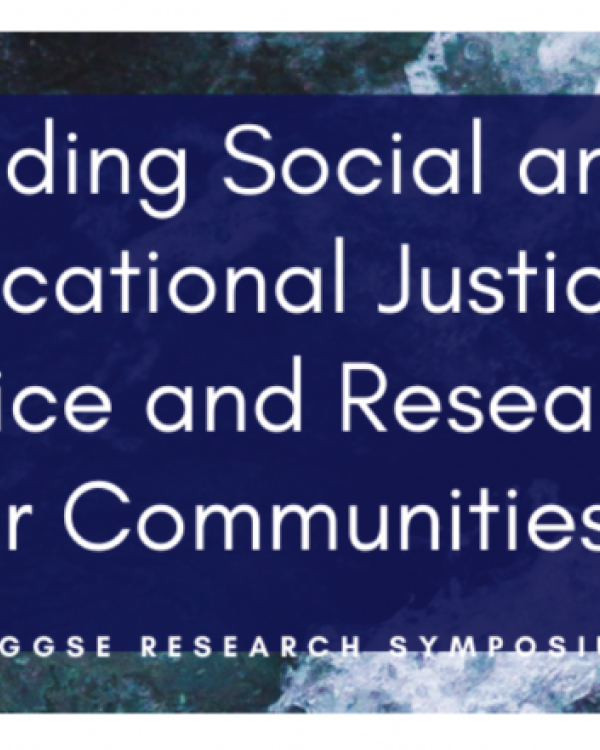
The second annual GGSE Research Symposium, which takes place virtually this Friday and Saturday (May 14 - 15) from 9 am to 1 pm, will showcase current student and faculty research and highlight opportunities for collaboration across programs, departments, and disciplines.
Organized by the Graduate Student Association in Education (GSAE), the conference invites students, faculty, staff and alumni from all areas of the school to present their work at any stage of the process with the opportunity to receive low-stakes feedback from peers and faculty. GGSE’s Dr. Tine Sloan will open the conference with a keynote address on Friday morning.
We spoke with GSAE representative Meghan Macias about this year’s theme--Leading Social and Educational Justice: Service and Research for Communities--and what session she’s most excited about:
GGSE: How did GSAE come up with this year’s theme, Leading Social and Educational Justice: Service and Research for Communities?
Meghan Macias: When we began planning this conference in fall of 2020, we had just started the new academic year during an incredibly tumultuous time. We were headed into a tense election cycle after a summer of protest and civil unrest, all the while grappling with an ongoing global pandemic. We felt that as students, teachers, and researchers living through this moment, each of us had spent much time reflecting on our own work. One question in particular that came up for us was: who do we hope to impact and why? Through some collective reflection, we crafted a theme that hopefully pushes our colleagues to think about what communities they hope to impact through their research and why that work matters.
GGSE: What do you hope attendees will learn and/or take away from the conference?
MM: This year we received proposals representing an even more diverse body of work than last! There's definitely going to be something for everyone. Most importantly though, we hope that everyone learns a little bit more about what their colleagues have been up to in their research activities this past year. We hope that the conference acts as a catalyst for not just community building but professional partnerships as well. Reach out to someone if their research interests you!
GGSE: Since the symposium is relatively new, could you describe how this project originally came about?
MM: Last year was the first! The conference came from a need to identify where graduate students, staff, and faculty might be able to work together on various projects. It goes without saying that our colleagues are doing really great work in our local community and beyond. However, rarely do we have the opportunity to collaborate across projects and groups. The intent of the conference was to identify areas of overlap in our work and to strengthen those working relationships.
GGSE: What are you looking forward to learning and/or participating in at the conference?
MM: I am most excited about our session on COVID and education. We received enough proposals this year that were focused on the impact that COVID has had on various areas of education to merit its own session. Talk about timely research. I think that this session is going to be a really powerful space for us to all reflect on what teaching and learning during COVID has been like and what lessons we should take with us as we (hopefully) start to transition back to in-person activities.
The conference program is now available at the conference website. Registration will be open until the day before the conference (May 13th by 5pm). Zoom links for sessions will ONLY be sent to registered participants so make sure to register. Anyone with questions can feel free to email GSAE (education-gsae@ucsb.edu)!